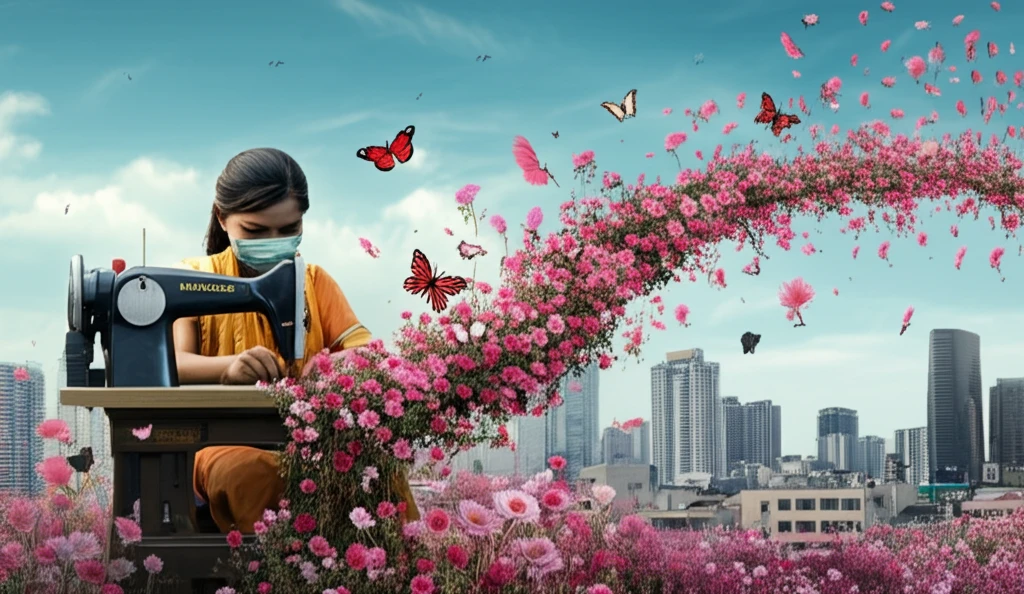
Ethical Work Revolution: Transforming Bangladesh's Garment Industry
"How Decent Work Standards, Empowered Workers, and Strategic Collaborations Can Secure a Sustainable Future for the RMG Sector"
Bangladesh's ready-made garment (RMG) sector is a powerhouse, driving economic growth and providing livelihoods for millions. However, this success has often come at a cost, with concerns about worker safety, fair wages, and ethical treatment casting a shadow over the industry. Recent years have seen increased scrutiny from international organizations, consumers, and activists demanding change and holding brands accountable for the conditions in their supply chains.
The concept of "decent work," as defined by the International Labour Organization (ILO), is at the heart of this transformation. Decent work encompasses opportunities for productive employment, fair income, workplace safety, social protection, and the freedom for workers to voice their concerns and organize. For Bangladesh's RMG sector, achieving decent work is not just a matter of ethics but a crucial step towards long-term sustainability and competitiveness in the global market.
This article delves into how ethical human resource management (HRM), empowered trade unions, and a renewed sense of moral responsibility are driving positive change within Bangladesh's RMG sector. It examines the challenges and opportunities that lie ahead as the industry strives to create a more equitable and sustainable future for its workers and the nation.
What Does "Decent Work" Actually Look Like in the Garment Industry?

The ILO's "Decent Work Agenda" provides a clear framework for what constitutes ethical and sustainable employment practices. The agenda is built on four key pillars, each addressing a critical aspect of worker well-being:
- Employment Creation: Focuses on creating opportunities for productive and fairly compensated work, enabling individuals to lift themselves out of poverty.
- Social Protection: Ensures workers and their families have access to social security, healthcare, and other essential services to protect them from economic hardship.
- Rights at Work: Upholds fundamental human rights, including freedom of association, collective bargaining, and protection against discrimination and forced labor.
- Social Dialogue: Promotes open communication and collaboration between employers, workers, and governments to resolve workplace issues and ensure fair treatment.
A Call to Action: Building a More Ethical and Sustainable RMG Sector
The journey towards decent work in Bangladesh's RMG sector is ongoing, but the progress made in recent years offers a reason for optimism. By embracing ethical HRM practices, empowering workers through strong trade unions, and fostering a culture of moral responsibility, the industry can create a more sustainable and equitable future. This requires collaboration, transparency, and a commitment to upholding the rights and well-being of all garment workers. The future of Bangladesh's RMG sector depends on it.
